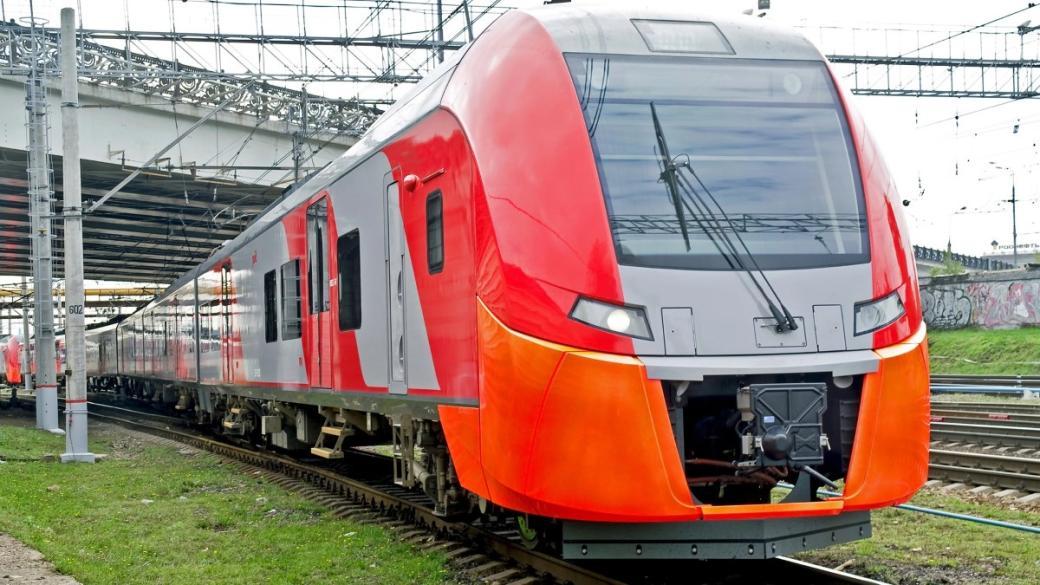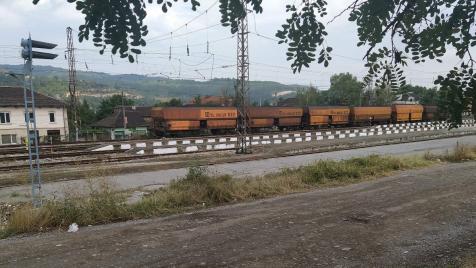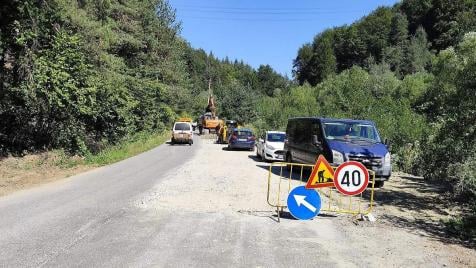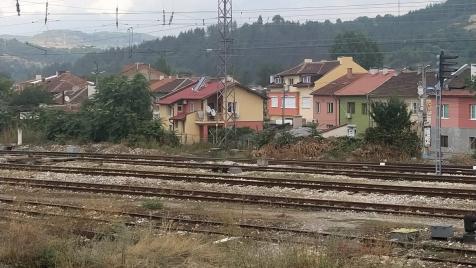Bulgarian Transport Minister “saves” tender for 35 new trains with budget money
Grozdan Karadjov picked the most expensive offer for the delivery of the machines, which were to be paid for entirely under the Recovery Plan

© ECONOMIC.BG / Depositphotos
The Bulemu consortium, with the participation of the French Alstom and the Bulgarian RPV Invest, will deliver the 35 trains, financed with funds under the Recovery and Resilience Plan. This was announced by the Bulgarian Transport Minister, Grozdan Karadjov, during Friday's parliamentary Q&A.
The curious thing is that Karadjov chose to give the contract to the bidder who challenged before the Supreme Administrative Court the previous contractor choice in the tender, which prompted the then Interim Minister of Transport Krasimira Stoyanova to suspend the call. In addition, this was also the most expensive offer.
Karadjov said that when he took office, he found the RRP projects in a critical situation - there was very little time left for them to be implemented.
One of them was for these 35 electric multiple-unit trains," he said.
A month ago, he had announced in the parliamentary committee that he would try to "save" the contract. The rescue in question came about after an interesting cascade of events involving two former ministers - Georgi Gvozdeykov and Krasimira Stoyanova.
However, it is currently unclear how much of the contract will be covered by the Recovery Plan and how much by the state budget. It is also unclear why the number of trains has not been reduced to fit the order into the Plan deadline and not burden the already strained public budget.
Everything will depend on the delivery deadlines, which are even more unrealistic. There are only 18 months until the RRP funds must be absorbed – by August 31, 2026.
This was also taken into account by the appointed parliamentary commission, which evaluated the tender documentation, but despite its opinion, the full order was completed with the selection of a contractor.
The Bulemu consortium offer is among the highest of all four that were submitted. It is worth over 445 million euros, and the agreed delivery period is 28 months, which would move the deadline to mid-2027.
The European Commission showed flexibility regarding financing and said that if the trains are completed by August 31, 2026 - they will be 100% at the expense of the Recovery Plan, and the rest of them will be at the expense of our budget, as was originally the case," explained Karadjov.
His statement means that the train units that are delivered by the RRP deadline will be paid by Brussels, and those delivered after that date will be paid from the state budget.
The chronology
The tender contract, which has now been revived by Karadjov, was the third attempt by former Transport Minister Georgi Gvozdeykov to secure the rolling stock. It was launched before the Easter holidays last year with an estimated value of 550 million euros. The transport ministry back then invited four companies to submit offers – Pesa (Poland), Skoda (Czechia), the Bulemu consortium, which includes various divisions of Alstom (France), as well as Stadler (Poland). The required delivery period back then was 28 months.
At the end of May 2024, it became clear that a contractor had been selected – the Polish Stadler – with a proposed price of 321 million euros and a delivery period of 28 months. Surprisingly, however, a month later the company abandoned the contract, together with another for the delivery of 7 double-decker trains. Minister Gvozdeykov shifted the blame to the company, stating that it had set ultimatums. Most likely, however, the problem arose from the almost impossible deadline for production, delivery and registration of the trains.
After Stadler's refusal, the transport ministry chose Pesa to deliver the 35 trains, as it had the second-best offer. However, a complaint was filed by Bulemu, which includes divisions of the French Alstom and the Bulgarian RPV Invest – the latter indirectly related to Vasil Bozhkov. That same consortium also participated in another bid under the Public Procurement Procedure – that one for the delivery of 20 single-deck electric trains.
In essence, the complaint alleged that the trains from the other two companies did not meet the requirements of the contracting authority and that the delivery deadline of 28 months was unfeasible and unrealistic. However, with the new extension of the contract, it is now clear that the consortium no longer has a problem with this deadline and that it will deliver the trains within that time.
In August, the Commission for the Protection on Competition (CPC) ruled that these reasons were unfounded. Thus, the procedure reached the Supreme Administrative Court. Acting Transport Minister Krasimira Stoyanova personally appeared at the hearing and requested that the complaint be dismissed.
In December 2024, however, the judges accepted the consortium's arguments and overturned the decision of the antimonopoly regulator. The court returned the file to the Ministry of Transport to continue the procedure from the last lawful action, in accordance with the mandatory instructions given in the reasons for the decision. This means in practice that the ministry can continue the tender starting from the evaluation of the technical proposals.
However, former Minister Krasimira Stoyanova did not continue the procedure due to the short deadline for absorbing the funds set under the RRP - August 2026. She was of the opinion that there was no manufacturer who could provide the trains in such a short time.
The revival of the contract
The current transport minister, however, clearly has a different opinion. Thus, by his order, the tender was resumed with new negotiations and a new evaluation of the proposals. This is clear from documentation published a day ago in the Public Procurement Register.
On December 27 last year, the transport ministry sent letters to the three participants in the competition - Bulemu Consortium, Pesa and Stadler - asking them to confirm the validity of their offers. However, Stadler refused to do so, as it had withdrawn from the tender, despite being selected as the winner.
Thus, negotiations were actually held only with Pesa and the Bulemu consortium. Between January 15 and February 14 of this year, the ministry asked participants to submit justification and evidence for the specified delivery period, and information on the availability or (lack of) locomotive licenses they offer. The documents have since been provided.
Thus, the parliamentary commission, of which former Minister Krasimira Stoyanova is a member as Head of the Legal Directorate, has proceeded to assess the matter. And this, despite the remaining delivery period for the trains having become even more unrealistic - only 18 months. However, the Commission has not requested from the bidders a change in their previously specified delivery period of 28 months.
Due to the prolonged appeal of the procedure, the 28-month delivery period proposed by the participants currently exceeds the deadline for the implementation of the investment and its financing - August 31, 2026. The implementation of the delivery beyond this deadline will deprive the contracting authority of the financial resources necessary to implement the order in its part regarding the delivery of the newly manufactured rolling stock," read the minutes of the Transport Commission's session.
"For this purpose, the delivery period of the rolling stock should be consistent with the deadline for implementation and payment of the investment under the Regulation. This requires the delivery to be carried out by August 31, 2026 (In the event of a possible operational starting date the contract on March 1, 2025, there will be 18 months for the delivery of the rolling stock)," it reads further.
Karadjov stated in parliament today that the ministry had asked the companies whether they could fulfill the order in 28 months. After receiving their answers last week, it became clear that only the Bulemu consortium could meet the deadline.
However, the documentation in the centralized information system indicates that Pesa had also stated that it could deliver the trains within the specified period. However, it did not provide a detailed schedule for the deliveries. In addition, the commission found that the registration of the electric train model in question could pose an additional difficulty, which could in turn extend the delivery period.
Although some of the information has been deleted as a trade secret, it is explicitly stated that "according to the participant..., the full approval process for a new type of vehicle takes between 14 and 19.5 months. The participant assumes that the issuance of an approval will take 14 months..."
Still, the Commission found that Pesa had not provided evidence of how it planned to meet this deadline for registration and delivery and therefore concluded that the company should be excluded from the competition.
The Bulemu consortium offer does not have such issues. The engineering development is strictly based on locomotives that have been already produced for Romania, which are similar to the ones in the offer.
For each unit, there is a description of the production process and factory testing, which are planned to take 1.5 months," the Commission's document states.
There is even a possibility of further improving the schedule in order to comply with the financing under the RRP. However, at a later point, it is mentioned that
The participant plans to implement the deliveries in stages after receiving a type approval for operation in Bulgaria, as this has been planned to take place in batches of 4 and 3 electric trains for a period of 10 months between October 2026 and July 2027.
The Transport Commission has agreed that the submitted schedules fit within the 28-month period, thus ranking the bidder in first place. However, even if this fits within the delivery deadline set by the tender, it does not fit within the deadline for the absorption of funds – August 2026. Thus, it is almost completely clear that the Bulgarian state will have to secure financing for the remaining trains.
Karadjov stated that if there is no appeal of the commission’s ranking within 10 days, the selected bidder will be invited to sign a contract.
Translated by Tzvetozar Vincent Iolov

 Gloria Hristova
Gloria Hristova 


